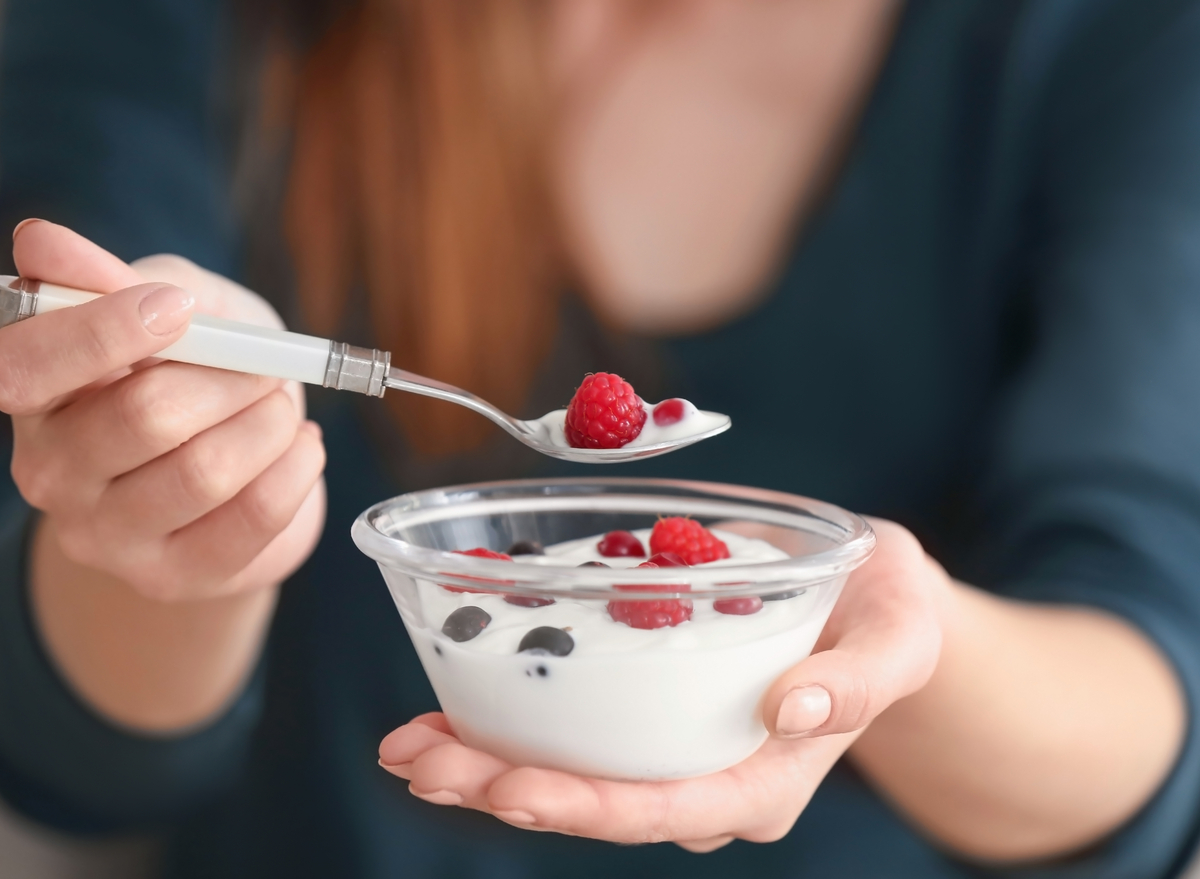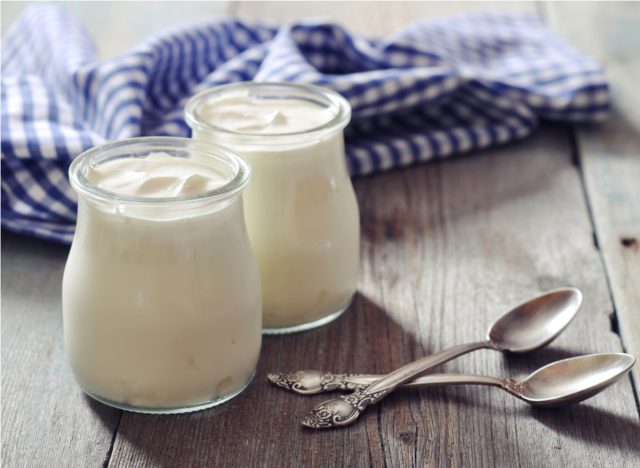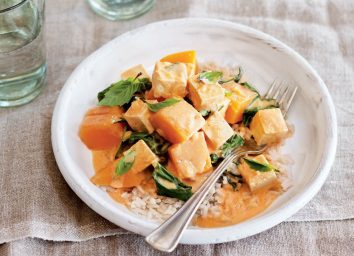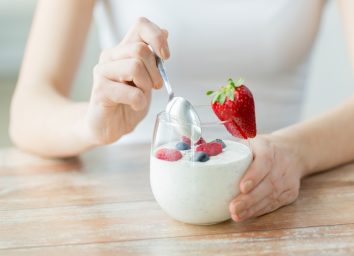The #1 Best Food to Keep Your Bones from Aging, Says Nutritionist

No bones about it: your skeleton is a critical (but often overlooked) part of your overall health. Strong bones store important minerals, are less likely to break, and support your entire body, allowing you to move freely. Still, it’s easy to take healthy bones for granted—until a fracture or a diagnosis of osteoporosis issues a wake-up call that they need attention. (Don’t miss these habits secretly increasing your osteoporosis risk.)
Looking to bone up on what prevents your skeleton from aging? One of the best means of fortifying your internal support system is your diet. Tons of edible options like milk and other dairy products, dark, leafy greens, fish, and citrus fruits contain nutrients known to enhance bone health (such as calcium, potassium, and vitamins C, D, and K). So which is the best food for preventing bones from aging?
As a nutritionist, my go-to bone-builder is yogurt. For starters, it’s loaded with calcium—a critical nutrient for bone density. One six-ounce container of plain regular yogurt packs 311 milligrams of this nutrient. That’s an impressive 31% of the recommended 1,000 milligrams per day!

Meanwhile, yogurt comes with a hefty dose of protein—anywhere from about nine grams per six ounces in the regular variety to 16 grams per container of Greek. Research shows that getting enough protein supports bone health, especially when you have adequate calcium in your system.
And did I mention potassium? In one snack-sized container of plain regular yogurt, you can get 15% of the daily target for women and 12% for men. Potassium has been shown to improve bone mineral density in older people. For extra bone benefits, some yogurts are even fortified with vitamin D.
Not surprisingly, several studies have shown this tasty fermented food is good medicine for bones. In one 2017 study on older adults, people who ate more yogurt had increased bone mineral density and better overall physical function. Similarly, a 2013 study on over 3,000 participants found that milk and yogurt intakes were associated with hip bone mineral density (though curiously, not with density of the spinal bones). Other research in the American Journal of Clinical Nutrition concluded that consuming dairy products (ideally three servings per day) could reduce the risk of fractures in later life.
Wondering whether it’s better to go Greek for bone health? I say it’s a toss-up. Regular yogurt tends to contain more calcium than Greek, but Greek yogurt packs more protein. You can’t go wrong choosing either, as long as you opt for a low-sugar or unsweetened variety. (If you find yogurt’s flavor too tangy, try adding berries or citrus fruits. Their vitamin C content will sweeten the deal for bone health.)
I’m a fan of Fage Total 2%, a Greek yogurt with just two ingredients: milk and live, active cultures. (No wonder it tops this list of best Greek yogurts!) Or check out Stonyfield’s Low-Fat Smooth and Creamy Plain yogurt. It’s fortified with vitamin D3, giving you a one-two punch of bone-boosting calcium and vitamin D. Blended in smoothies, dolloped onto Mexican dishes, or folded into baked goods, either option is a definite boon for your bones.









